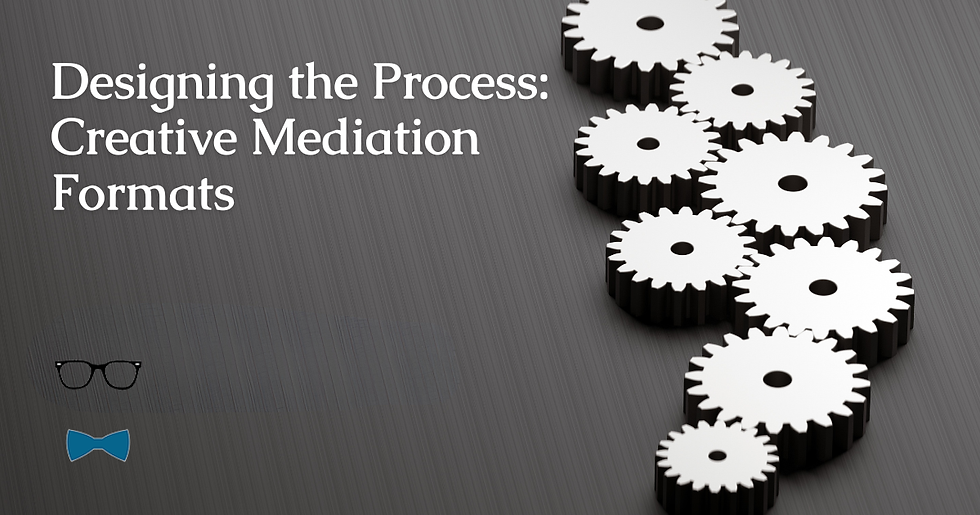Getting Out of the Comfort Zone in Mediation
- Cooper Shattuck

- Dec 22, 2022
- 2 min read

We like it when things are predictable, known, and foreseeable. We like things to be the same. We rarely like change, and we don’t always adapt easily. This is especially true for lawyers. Our business depends on our ability to predict outcomes - to know what course of action will likely lead to a more certain conclusion when we offer our clients the pros and cons of various courses to make informed decisions. We need to understand and be able to communicate the risks associated with decisions. Knowledge and experience are our goals and the foundation of our value. And they play an important role in mediating cases.
But we must appreciate and embrace that when done correctly, every mediation is different.
It isn’t that predictability and foreseeability have no place in mediation. They do. They help guide decisions on whether a resolution is palatable or subjectively reasonable. But at mediation, predicting outcomes of negotiation or failing to prevent past experiences and histories from influencing a current outcome can lead to unwise outcomes.
One of the hallmarks of mediation is the parties’ ability to freely decide the outcome.
As a mediator, my job is to ensure that happens. Unfortunately, many mediations result in a resolution that isn’t optimal, and that doesn’t provide the best solution for all parties. Mediations can result in win-win resolutions.
What prevents wise outcomes at mediation? We’re lazy. And afraid. And we like predictability.
We struggle to think outside the box and to look outside the box for potential solutions. In other words, we approach mediations/negotiations in the same old manner, without doing those things that can truly enable the highest and best resolution for all parties.
While we should always prepare, we must approach every case with an open mind, truly listen to the interests of those involved or affected, and be willing to share our own interests.
For the lawyers and the parties, that means knowing and understanding your true interests and being honest with the mediator about them. We must gently mine the parties for what is important to them and not succumb to the temptation to rely solely on our assumptions based on prior experiences.
While we would like to think that a case with the exact same facts always has the same settlement value, it doesn’t.
While there are objective considerations that may play into the value of the case, a reasonable settlement value is always subjective. And that frequently makes the uninitiated nervous.
The settlement value of every case is driven by the interests, wants, needs, and desires of the parties. Deep down, we know this to be true.
While our civil justice system turns primarily on financial considerations and awards, our negotiations can and should take into account the many other interests that parties have. It is exploring all those other issues, avenues, and opportunities that make working through and solving or resolving a dispute rewarding. And that’s why I love being a mediator.



Comments